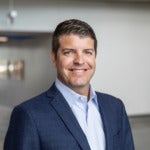The Occupational Safety and Health Act: The Past and Future of Workers’ Well-Being
Description
President Nixon signed the Occupational Safety and Health Act (OSH) in 1970 following decades of workplace injuries and fatalities at mines, factories, construction sites, and other industrial settings. OSH is meant to ensure safe and healthful working conditions for workers by setting and enforcing standards and by providing training, outreach, education, and assistance. The law has been a tremendous success in protecting workers and has had a considerable impact on workplace safety. Workplace fatalities have dropped by 65% since 1970, and workplace injuries and illnesses have dropped by 67% in about the same amount of time.
Even with this remarkable progress, challenges remain in protecting workers in traditionally dangerous work, including construction and agriculture, as well as industries such as retail and health care. The COVID-19 pandemic not only underscored the need for worker protections across sectors, but also demonstrated the need for the government to play a role in setting standards, monitoring workplaces, enforcing regulations, and educating and training employers and employees on risks and risk prevention. The rise in temporary work, the gig economy, and the use and misclassification of independent contractors who are excluded from OSH has created additional challenges in protecting workers. And as the pandemic illuminated, access to safe workplaces is not shared equitably. Black and Latino workers suffer disproportionately from dangers in the workplace and are more likely to die on the job. How do we address these inequities and build a safer workplace for all workers? What can we learn from the history and implementation of OSH?
This is the fourth conversation in our five-part series, The History and Future of U.S. Labor Law: Conversations to Shape the Future of Work.
Share
Tweet In this video, hear @AspenJobQuality #talkopportunity with @MagalyLicolli, @drdavidmichaels, @saket_soni, Jon Woodsum @bartonmalow, and @andrea_c_hsu about occupational safety, health, and workers’ well-being.
Tweet Video: Occupational Safety and Workers’ Well-Being. With @MagalyLicolli @VenceremosAR, @drdavidmichaels @GWpublichealth, @saket_soni @ResilienceForce, @bartonmalow, and @andrea_c_hsu @NPR.
Tweet Workplace fatalities dropped by 65% since 1970. But over 5,000 workers still die annually on the job and millions are injured. How can we build safer workplaces? Hear @AspenJobQuality and guests #talkopportunity.
Tweet As the pandemic illuminated, workplace safety is not shared equitably. Workers of color and immigrant workers often face greater risks. What can we do to address these inequities?
Tweet Increased reliance on gig workers and contractors — who are not protected by the Occupational Safety and Health Act — has created new challenges to building safe workplaces.
Tweet The pandemic underscored the need for government to be proactive in setting standards, monitoring workplaces, and enforcing regulations around workplace safety.
Speakers

Magaly Licolli @MagalyLicolli
Executive Director and Co-Founder, Venceremos @VenceremosAR
Magaly Licolli grew up in Guanajuato, Mexico, and immigrated to Arkansas in 2004. In 2015, Magaly became the executive director of the Northwest Arkansas Workers’ Justice Center. As director, she led the poultry campaign in Arkansas, which gained notoriety around the nation. Throughout her work, she has participated as a steering council member of HEAL Food Alliance and as co-chair at the national steering council of Interfaith Worker Justice. She currently serves as a member of the Labor Research and Action Network advisory committee and as a member of the advisory committee of Civil Eats. Her vision to ensure the dignity of poultry workers led her to collaborate with the Coalition of Immokalee Workers to expand the worker-driven social responsibility model into the poultry industry. In 2019, she became the executive director and co-founder of Venceremos, a worker-based human rights organization that works to ensure the dignity of poultry workers. In 2020, she was recognized by the Arkansas Business Publishing Group as one of Arkansas’ 250 most influential leaders.

Dr. David Michaels @drdavidmichaels
Epidemiologist and Professor, The George Washington University School of Public Health @GWpublichealth
Dr. David Michaels is an epidemiologist and professor at the George Washington University. He served as Assistant Secretary of Labor for the Occupational Safety and Health Administration from 2009 to 2017 and was the longest serving administrator in the agency’s history. His work primarily focuses on three areas: worker safety and health, defending the integrity of the science underpinning our public health and environmental protections, and COVID-19.

Saket Soni @saket_soni
Executive Director, Resilience Force @ResilienceForce
Saket Soni is the co-founder and executive director of Resilience Force, the national voice of the resilience workforce — the workforce whose labor helps us prepare for, and repair after, climate disaster. He has organized on the frontlines of climate change for over 15 years. Saket has testified in Congress, and his work has been featured in the New Yorker, the New York Times, and TIME Magazine. A profile in USA Today called him “an architect of the next labor movement.” Saket is from New Delhi, India. He’s a proud uncle and loves to cook.

Jon Woodsum
President, Barton Malow Company @bartonmalow
Jon Woodsum is the president of Barton Malow Company. In his role, Jon provides overall leadership and strategic direction for industrial-based markets including energy, automotive, manufacturing, industrial process, and self-perform building trades. Jon’s entire professional career has been with Barton Malow Company, where he began as an intern in 1999. After many years of leading projects in the field, Jon was selected to head up an enterprise-wide technology upgrade, positioning him for a supervisory role in IT systems. After seven years in leadership, including two as vice president of systems, Jon returned to his true passion within project delivery as vice president, and eventually senior vice president, of the company’s industrial markets.
This diverse background enables Jon to bring a deep understanding of how technology and innovation can be leveraged to increase business performance. As president of Barton Malow Company, Jon’s passion for cultivating a highly engaged and intensely collaborative team directly impacts safety, quality, and productivity, resulting in increased value for clients.
Jon holds a bachelor’s degree in civil and environmental engineering from the University of Michigan and a Master of Business Administration from the University of Detroit Mercy. He’s also a founding member of the University of Michigan Construction Board of Advisors and a graduate of Leadership Detroit Class XXXVI.
Moderator

Andrea Hsu @andrea_c_hsu
Labor and Workplace Correspondent, NPR @NPR
Andrea Hsu is NPR’s labor and workplace correspondent. Hsu first joined NPR in 2002 and spent nearly two decades as a producer for “All Things Considered.” Through interviews and in-depth series, she’s covered topics ranging from America’s opioid epidemic to emerging research at the intersection of music and the brain. She led the award-winning NPR team that happened to be in Sichuan Province, China, when a massive earthquake struck in 2008. In the coronavirus pandemic, she reported a series of stories on the pandemic’s uneven toll on women, capturing the angst that women and especially mothers were experiencing across the country, alone. Hsu came to NPR via National Geographic, the BBC, and the long-shuttered Jumping Cow Coffee House.
The History and Future of U.S. Labor Law: Conversations to Shape the Future of Work
U.S. labor laws passed in the last 100 years improved job quality for millions of workers, establishing and enhancing bargaining rights, wages, opportunities, and workplace safety while also helping to create the world’s largest economy and middle class. These laws did not redound to the benefit of all workers and too often excluded women, people of color and immigrants from their protections. In many ways, these laws were the codification of a social contract across class in the U.S., creating the conditions for economic progress with a mostly common purpose. Today, however, the power of these laws has eroded and the rights they once afforded workers–to have a voice in the workplace, to be safe from harm, to access opportunity regardless of social status, to earn a decent living–have diminished. As a result, millions of workers in the U.S. today find themselves immersed in the fight, like many workers before them, to access opportunity and improve job quality for themselves and future generations.
The future of work will be shaped by what we do now, just as the labor laws passed long ago have influenced opportunity, employment and workplaces today. Understanding our past is, therefore, vital to charting the course for what we want work and job quality to look like tomorrow and decades from now. Join The Aspen Institute Economic Opportunities Program for this five-part discussion series, The History and Future of U.S. Labor Law: Conversations to Shape the Future of Work, where we will learn about and reflect on the history of U.S. labor law, examine current implications and challenges, and discuss how we shape a future of work that provides opportunity and dignity to all.
- Part I: Worker Power and the National Labor Relations Act – March 16
- Part II: The Rewards of Work: Lessons from the Fair Labor Standards Act – April 7
- Part III: Title VII of the Civil Rights Act: Fulfilling the Promise of Equal Opportunity – April 27
- Part IV: The Occupational Safety and Health Act: The Past and Future of Workers’ Well-Being – May 4
- Part V: A Workers’ Bill of Rights: What We Want and How to Get There – May 26
Opportunity in America
The Economic Opportunities Program’s Opportunity in America discussion series has moved to an all-virtual format as we all do what we can to slow the spread of COVID-19. But the conversations about the changing landscape of economic opportunity in the US and implications for individuals, families, and communities across the country remain vitally important. We hope you will participate as we bring our discussions to you in virtual formats, and we look forward to your feedback.
We are grateful to Prudential Financial, Walmart, the Surdna Foundation, the W. K. Kellogg Foundation, Bloomberg, and the Mastercard Center for Inclusive Growth for their support of this series.
Learn More
The Economic Opportunities Program advances strategies, policies, and ideas to help low- and moderate-income people thrive in a changing economy. Follow us on social media and join our mailing list to stay up-to-date on publications, blog posts, events, and other announcements.